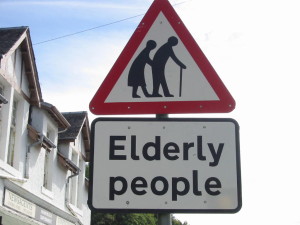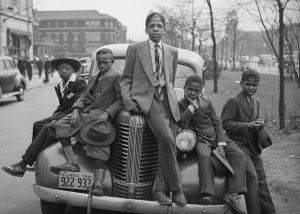
Image: Flickr / Ethan Prater
Society is in a perpetual state of evolution. As technology settles into its role as a human need on par with water and oxygen, we’re prone to discuss the negatives a lot more than celebrate the positives. The internet has given us some great things, including giving the elderly a lifeline to the outside world. In Western society, people over 65 are beginning to click with social media like never before. Forums, chat rooms and Facebook groups are giving the older generation a network all of their own. Not only does this mean stronger lines of communication for families, but it provides a stronger platform for social issues surrounding the elderly.
Social networking and the older generation
As the average life expectancy past 60 continues to increase, society is going to need all the help it can get in keeping those people active. We can always do more to encourage those in later their later years to engage with the medium of social networking. Classes designed to provide training for pensioners in using modern technology are a great start, but even ensuring your own elderly relatives are comfortable with technology can open a whole new world for them. Isolation and inertia don’t have to become the norm for anyone today, providing they’ve got a computer and an internet connection.
Growing old today doesn’t mean the same thing today as fifty years ago. As society changes, so does the way we interact with each other. Maintaining regular contact with your elderly family has never been easier, and as studies like the Global AgeWatch Index have shown, using social media for just a few minutes a day can increase cognitive functioning and reduce feelings of isolation. By studying the elderly standard of living in Ireland, America and Britain (as in the Global AgeWatch Index did), we can begin to implement real strategies to improve the standard of living around the world.
Life for the elderly abroad
Internationally, the standards of living for people over 75 differ hugely based on the country, region and city. Unsurprisingly second and third world countries often struggle to provide a safe and comfortable environment for their aged population, but standards in most have improved over the last twenty years. Because western cultures tend towards separate family units, the older generation is more vulnerable to feelings of isolation. In fact, a BBC poll conducted last year found that around 82% of pensioners were not looking forward to Christmas. The increased risk of severe weather and shorter daylight hours meant they associated the festive holiday with being alone and cut off from the world. Loneliness in Britain is most common for over 75s, but social media can help alleviate the issue as technology becomes a more integral part of daily life.
Keeping active
Not only is the internet providing a voice to seniors around the world, it’s also giving the aged a chance to keep active. It’s no secret that exercise can alleviate feelings of depression, stress and isolation, but the physical demands of regular exercise can often be too much for seniors. That’s why social media is so important; it can provide the gateway for the average OAP to get back on their feet and leading an active life again. There are entire websites dedicated to letting seniors know about local events, activities and sports clubs. Physical exercise doesn’t just provide psychological support to the aged, it can help prevent health problems such as heart attacks and strokes. Sports clubs created just for seniors are becoming increasingly popular, thanks in large part to the proliferation of social media.
In the UK
At 64.7 years in Britain, the high average retirement age means our national health service is less burdened than others, but the growing number of pensioners does present an impending care issue. In some of the world’s poorest countries, retirement can be as late as 85, with little to no pension scheme in place to assist the elderly. Social media is helping bring this issue to light, but the older generation are one of the first groups to be marginalized during times of economic hardship. Thankfully, today more countries than ever have implemented schemes to provide for the country’s aged, but severe economic deprivation makes a consistent and fair pension system almost impossible to implement. With some cultures, particularly in Asia, placing an emphasis on maintaining the entire family unit under one roof, issues of loneliness are less common than in Britain, but access to healthcare and income security are often lacking.
In Britain and Ireland, at least, the internet is being used as a tool for maintaining ties with elderly relatives, regardless of the real world distance between them. A study from the Pew research Centre found almost 50% of people over 65 had used social media, with this number growing every day. Keeping in touch has never been easier, but we need to make sure everyone is being heard. Ageism and elderly issues are being confronted by charities and social rights groups, but we should be listening to what the OAP’s have to say on the matter. The elderly generation is making its voice heard, we just need to make sure we’re listening.
[Featured image: Flickr / Ethan Prater]
(136)







